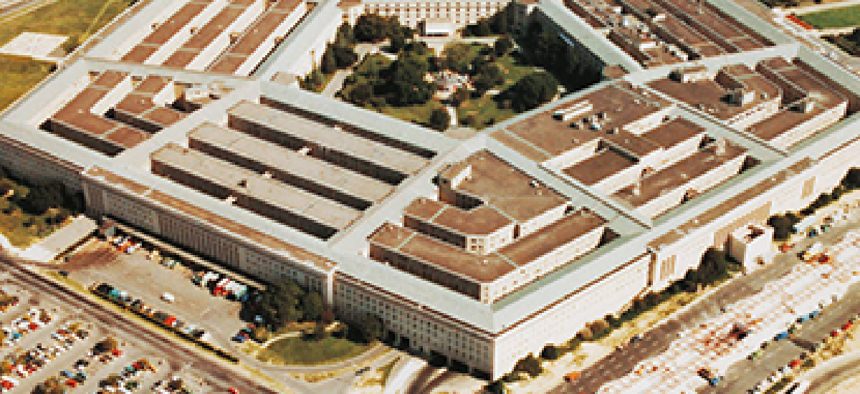Improved Pentagon acquisition requires tolerance of risk

Overhauling the defense acquisition process is a national security imperative in tight budget times, argues a consultant and former Marine major general.

The federal government must get more comfortable with risk if it is to deliver the nimbler and more performance-based acquisition regulations that defense contractors pine for, a panel of industry executives said this week.
Federal contracting officials should move from the "adversarial, risk-intolerant oversight culture we have with procurement to one that incentivizes and encourages innovation and appropriate, smart risk-taking," said Joe Jordan, FedBid's president of public sector, during an April 23 panel discussion hosted by Bloomberg Government.
There is a widespread perception among federal contractors that the government punishes rather than rewards innovation, he added. "If you step out [on] the ledge half an inch, you're worried about the IG report, the GAO report, your boss getting called to the Hill and then you bearing the brunt of the repercussions."
Abandoning that risk-averse approach requires a cultural shift, he added -- something bigger and less tangible than amending the Federal Acquisition Regulation.
A successful defense project requires a program manager who is unafraid, agreed Betsy Schmid, who worked for the Senate Appropriations Committee's Defense Subcommittee and is now a vice president at the Aerospace Industries Association. Pairing a risk-tolerant federal employee with a good industry counterpart would "see programs make changes on a dime that you wouldn't see necessarily when there was a confrontational relationship," she added.
Growing pains have accompanied the move to performance-based contracting under the Obama and the George W. Bush administrations, retired Marine Corps Maj. Gen. Arnold Punaro told the audience. The early stages of that transition were marked by "government contracting officials [who] didn't know how to write the contracts" and defense firms that did not know how to assess risk in those contracts, said Punaro, now CEO of his own consulting firm and chairman of the National Defense Industrial Association.
He added that Frank Kendall, undersecretary of Defense for acquisition, technology and logistics, is trying to quicken the glacial pace at which contracts are approved, but he is up against a formidably inert bureaucracy.
Punaro sees acquisition reform as a national security imperative. "If we don't reverse the adverse trends in acquisition, overhead, and pay and compensation -- particularly deferred compensation -- our warfighting forces are the output of what we get," he said.
At least one panelist offered creative destruction as a means of reforming acquisition. The procurement process should be scrapped altogether, said Raj Sharma, CEO of Censeo Consulting Group.
The slow procurement process "creates a lot of barriers to entry and barriers to innovation" and is discouraging Silicon Valley startups from pursuing federal contracts, he said. He advised agencies to whittle down procurement requirements to a two-page document and engage with industry early in the process.
The Defense Department might have a similar approach in mind. Assistant Secretary of Defense for Acquisition Katrina McFarland said last week that DOD was considering sharing potential procurement requirements with industry even if those draft requirements never take effect.
NEXT STORY: Industry, agencies talk small business obstacles


